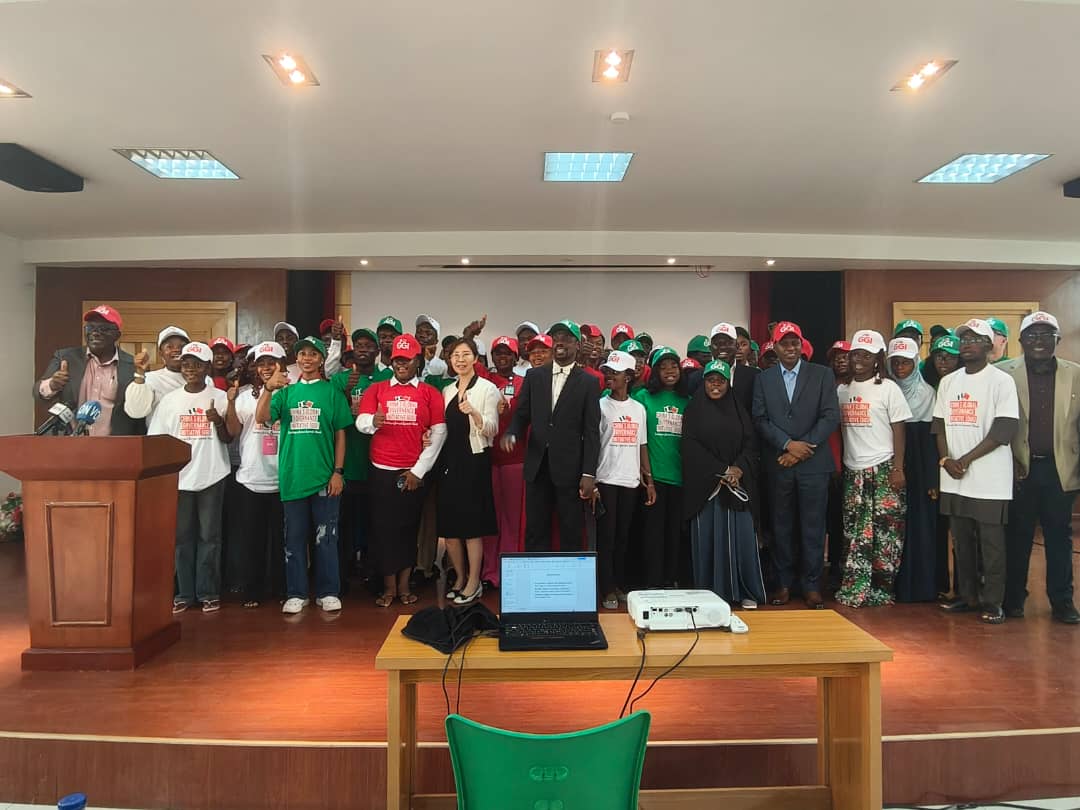Nigerian and Chinese officials, scholars, and policymakers have called for bold reforms of the international system and stronger South–South cooperation under the Global Governance Initiative (GGI), a new framework launched by Chinese President Xi Jinping to promote fairness, inclusivity, and practical action.
The call was made at a one-day seminar on “Opportunities for China–Nigeria Cooperation under GGI” held at the China General Chamber of Commerce in Abuja on Thursday.
Jointly organized by the Centre for Contemporary China–Africa Research (CCCAR) and the Centre for China Studies (CCS), the event brought together diplomats, academics, policymakers, students and journalists to discuss how both countries can harness the initiative to address pressing global challenges.
In her remarks, Dong Hairong, Counselor of the Chinese Embassy in Nigeria, described GGI as “another public good that China has provided to the world,” alongside the Global Development, Global Security, and Global Civilization Initiatives.
She stressed that GGI rests on five key principles: sovereign equality, rule of law, multilateralism, a people-centered approach, and action-oriented cooperation.
“The world is far from peaceful and stable. We witness geopolitical tensions, economic uncertainties, regional conflicts, and public health crises. It is high time to address the problems in the global governance system,” Ms Dong said.
She added that China is ready to work with Nigeria and Africa to push for UN Security Council reform, fairer international financial systems, and cooperation in areas such as AI, cyberspace, climate change, trade, and outer space.
Prof. Sheriff Ghali Ibrahim, Director of CCCAR, argued that reform of global institutions is urgent. He called for permanent African seats at the UN Security Council, fairer international financial systems, and a stronger voice for developing nations in the G20 and IMF.
He noted that Nigeria has consistently championed these reforms, including at the 2024 UN General Assembly where it demanded financial inclusivity, debt relief, and collective action against global challenges.
“Nigeria and Africa must reposition themselves to better fit into global governance by fighting corruption, embracing democracy, and adopting a people-centered approach,” he said.
Also speaking, Prof. Udenta O. Udenta, Director General, African Writers Institute, described GGI as “disruptive, transformative, and counter-hegemonic.
He argued that the Western-dominated “rules-based order” imposed after World War II entrenched U.S. hegemony and marginalized the Global South. GGI, he said, provides a coherent framework linking BRICS, the Belt and Road Initiative, and the Forum on China–Africa Cooperation (FOCAC) into a platform for an inclusive and equitable world order.
“A multipolar world under the guidance of GGI will emerge on the carcass of the existing Western-dominated order. China and Africa can spearhead this transformation through deeper South–South cooperation, stronger BRICS, and expanded Belt and Road partnerships,” Prof. Udenta said.
Looking ahead, Dr. Muhammad H. Sani, lecturer at Baze University, said Nigeria is at a “strategic crossroads” and could become a global player by 2030 if it embraces GGI principles.
He pointed to Nigeria’s BRICS membership, Africa’s largest economy and population, natural resources, and cultural influence as tools to amplify its global role. He projected Nigeria as a diplomatic leader, norm-setter in AI and climate governance, and a bridge between North and South.*
Dr. Sani recommended flagship projects such as a “Nigeria Green Grid Project” to advance renewable energy and an AI and Digital Policy Hub by 2030.
“By embracing GGI’s principles today, Nigeria can by 2030 emerge as a diplomatic leader, standard-setter, and hub of innovation,” he said.
The seminar concluded with a consensus that the Global Governance Initiative provides a historic opportunity for Nigeria, Africa, and China to reshape the international order, amplify the voice of the Global South, and promote a fairer and more inclusive system for humanity.

Leave a Reply